|
Here it is, the new short story that I will use on my unsuspecting high school victims. We will see if this one inspires stories about non-serial killer related topics. I will give some thoughts at the end, but, for now, here we go.
Vermintide France, 1807 Shafts of pale morning light tumbled through the forest canopy and careened into the carriage as it clattered along the dirt road. Every rock in France seemed to jump in the way of the wheels, throwing the wagon about like a schooner on rough seas. But Napoleon didn’t mind. Plush seats in a bumping coach were still preferable to days riding horseback. He shoved a grape in his mouth, ripping into the tender flesh with his front teeth, as Chief of Staff Demoux continued to blather on. “...are harassing the western borders. We are sending a fresh contingent of troops and supplies there tomorrow.” Demoux flipped through his ledgers, gripping them tightly as the carriage lurched again. “Emperor, the riots are getting worse in the Capitol. The people complain that we aren’t doing enough to quell the rabble rousers.” “Cela n'a pas d'importance.” Napoleon waved his hand as if brushing the report away. “Someone always worries. Let them. We are taking action; that is enough.” He tossed another grape into his mouth and squished it with his front teeth so Demoux could see. The man winced and quickly shut his ledger. “Of course, Sire.” Napoleon glanced out the window. “Are we almost there? My feet grow restless.” Lieutenant Lutre spoke up. “Nearly there, Commander. Your legs will soon see some sport.” “Good. I haven’t killed anything in days.” Both men winced as he bit into another grape, lips open. The juices ran down his chin. Luckily, for Lutre and Demoux, the carriage rolled to a stop only a few grapes later. “Finally,” Napoleon said, standing up. Without waiting for his men, he opened the door and stepped out before the coach stopped bouncing. The forest had given way to a meadow of low scrubgrass and patches of dirt. Horses snorted and shuffled as his mounted guards saluted from behind the coach. He ignored them as he stomped, testing the compactness of the dirt. A deep breath brought clean air to his lungs, free from the soot of the city. A man appeared at his side. Chief Officer Berthier saluted, fingers touching his brow, hand flat, palm facing out. “Emperor, welcome. I trust the ride wasn’t too long?” “Could you not have found something closer, Alexandre?” “Sorry, Your Excellency, this was the most defensible spot I could find.” Napoleon grimaced. The ground looked more lumpy than King George’s backside and nearly as white. He could twist an ankle running someone down in this meadow, and the blood would turn the dirt straight to muck. These were his good boots! It was turning into a terrible day. Seeing his displeasure, Berthier hurried to make amends. “If the emperor doesn’t like this particular spot, I would be happy to reset for another day--” “No! No.” Napoleon had not endured Demoux’s blathering and a jarring carriage ride for nothing. “Are they ready?” “Oui. I spaced them in two cages, one on either side of the meadow, just out of sight. Once let loose, they’ll run right into your line of sight. They’ll never know what hit them.” Maybe the day wouldn’t be a total loss. “How many are there?” Berthier smiled. “Now, this should please your excellency. I had to clear out every farm and hovel in the area, but I found enough of the little devils to fill two cages.” Now Napoleon smiled, too. Two cages full! Why, he would run out of musket balls and be forced to start using his sabre. What sport! “Excellent job, Berthier. Are we ready to release?” “At your command.” Demoux and Lutre had exited the carriage and were lugging a stock of six rifles to a makeshift rack behind him. They lined the rifles on the rack and set out a bucket of musket balls, plugs, and black powder horns. They would reload the guns as fast as Napoleon could fire them. Indeed, he had been wrong. This was turning into quite the celebration. “We, too, are ready, Emperor,” Lutre said. “Bien joué! Berthier, make ready to release.” Chief Officer Berthier nodded and waved to a soldier waiting at the edge of the trees. Both of them disappeared into the forest. Lutre handed Napoleon a loaded musket. He turned toward the meadow and held the rifle tucked up by his shoulder. The moment his prey burst out of the undergrowth, he would bring the rifle up and fire. He waited, finger against the cold steel of the trigger, the wood grip digging into his palm. The anticipation wasn’t as intense as before a true battle, but Napoleon always felt a bit giddy with a rifle in his hands. A rifle was death incarnate, fire and power and fear forged into metal and wood. A twitch of the finger, and a life ended. A shift of the trigger, and all hell broke loose. He lived for that moment, that heartbeat of searing glory. Quelle joie! A sudden gust of wind ripped through the pines, setting the branches into motion. Napoleon had his gun up searching wildly for targets before he realized his mistake. He lowered the rifle and growled. “What is taking them so long?” Demoux cleared his throat. “I’m sure--” The crack of a pistol ricocheted through the trees, cutting the chief of staff off. “Finally,” Napoleon said, raising his rifle again. He waited, pulse racing, but the moment stretched, silence returning to the meadow. No one moved. The foliage lay as still as a painting, not even a breeze to rustle the leaves anymore. Surely his men had opened the cages by now; any moment the grass would part and he would have blood. Yet, still he waited. The musket grew heavy in his hands, but he did not lower it again. His muscles ached, but still he held position. In war, the man who broke was the first to die. He licked his lips and tasted the sticky sweet juice of the grapes on his skin. A sound rose out of the frozen forest like a thundercloud boiling over a mountain. Bushes rustled so loud Napoleon thought the wind must have returned, but the trees did not sway. The shrubbery at the edge of the clearing began to shake, and, behind the rattling of the branches, a pattering grew like a great downpour from the heavens was rushing at them. Napoleon let the end of his rifle drop slightly in shock. The bushes seemed to dissolve as a tidal wave of white and gray boiled into the clearing. Their bodies flowed over the grass, converging from both sides of the clearing like the clash of two great rivers. Rabbits! He had never seen so many rabbits. They filled the meadow in a seething mass that turned its head and flowed straight for him. “Sacré bleu!” His finger reflexively pulled the trigger. A click and a flash ignited the black powder in an explosion that filled the air with acrid smoke. He barely registered the deafening boom, but he did see the musket ball impact the ground far behind the charging rabbits. The vermin didn’t even slow at the shot. They just barreled toward him like a tidal wave. A vermin tide! Their fury demon bodies were almost on him, so he grabbed the barrel of the gun and swung at the little devils. The swing went wide in his frenzy, putting him off balance. They were on him now, jumping at his legs, clawing their way up his chest. He stumbled and fell onto his back in a puff of white dust. Rabbits washed over him, ignoring his thrashing arms. Each time he plucked one from his face, another filled its place. They knew his fear. Little tongues licked relentlessly at the dried grape on his chin. He felt teeth sink into his flesh. Napoleon screamed. End I learn a lot from my students. They help me think outside of the box. A few years ago, a student found out about Napoleon and the rabbit attach while deciding on a topic for his historical fiction. Then, like a spider weaving a web, fate reached out and provided me the same story on a folklore podcast. I haven’t been able to forget about this strange bit of history since. When I first thought about changing the example story for the unit away from serial killers, I could not get my mind to let go of this curious tale. I knew it had the potential to be funny, concise, and maybe a little strange. From the get go, I knew I had to put a horror twist on the attack of the bunnies. It was fun to write, and, I hope, fun to read. I will let you all know the results of my little experiment after I teach 11A again. Next year. Sorry. Thanks for reading Title of Liberty! Subscribe for free to receive new posts and support my work.
0 Comments
A foggy London alley. Blood soaked fingers. Is he the killer? Or a vigilante? My students like me because I’m pretty. Okay, not true. I have been teaching for seven and a half years, and I almost quit after year one, but that is a story for another time. God is in it, for sure. But, this story is about why my students like me, kind of. When I first began my teaching career, most students didn’t like me. My sarcasm hit wrong, and I was still trying to teach the way I had been taught. A few students did get me, and I always seem to have a small crazy fan club for some strange reason, but it took a while for my English classes to be liked by the majority instead of the minority. I owe a lot of the change in popularity to my writing. Don’t get me wrong, very few of the students ever read my books. It is not really about my writing; I have just learned to teach differently because I am a writer, and the students responded. Also, my sarcasm finally wormed its way into their stone cold hearts. Go figure. I teach to help them understand the power of words. My entire class is devoted to showing them that, if they work at it, they can be a good writer, and that makes them a good thinker. They don’t have to be right the first time. Writing is about trial and error; you just have to get something on the page and then figure out how to alter and manipulate the words until it works. Learning is often the same, especially at the high school level. I show them that words have power, and they appreciate that. There is one unit that I always teach: writing a historical fiction. To be able to write a historical fiction short story, not only do they have to learn writing technique, they first have to figure out what they think is interesting from history and then research it. They get to interact with history in an authentic way, with curiosity. Then, they get the chance to change the world or just one person’s life. Students complain because that is their way, but I can tell they enjoy the assignment. It is nothing like anything they have ever done before. Also, I get to have a little fun. I prime the lesson by having them read a short story called “A Whitechapel Night.” It takes them on a journey through Jack the Ripper’s London and forces them to ask if the main character’s actions make him a monster or a hero. We read the story, define vocabulary, and argue about whether the main character is Jack the Ripper or if he is hunting Jack. They bring up evidence for both sides without being able to completely decide. I love this conversation because that is exactly how I designed it. I wrote the story specifically to be their example for the assignment. I give it to them without my name on it, so they read it cold. About the point they start getting frustrated about who the main character really is, I tell them that if they will go through the story and figure out through research what parts I changed from history and what I kept accurate, maybe we can figure out who the main character is meant to be. Most of them don’t notice what I said. But someone always does. “Wait, you wrote this?” I don’t teach much of my own writing, but I have my books at the front of my room all year. Still, they are surprised I wrote something that was actually good. Thanks guys. It is a good story, albeit a bit dark, and the students like it, but I have noticed a trend in the stories they write for the unit. Multiple students write about serial killers. I have been asking myself, “Is my story acting like a primer?” Probably. So, in comes my experiment. After five years of using “A Whitechapel Night” to teach the unit, I am changing things up. I wrote a brand new short story for the unit. No serial killers involved. Still a bit dark, though. I will get to that story in another post, but I wrote it to see if a new type of example story would prime my students away from serial killers. I am curious to see what happens. So, here is what we, you and I, are going to do. I have two stories that I like. I am going to share the serial killer one in this post (it is dark with some blood but safe) and the other story in my next post. Then maybe one day I can get back to you the results. Now, I am just going to share my writing, because that is what I like to do. The story I am about to share has always been well received by my students, so I hope you enjoy it as well. A Whitechapel Night Mist curled around Thomas Bond’s grime spattered boots, but it shied away from his hands, smeared with sticky red as they were. The London vapors also avoided the two misshapen piles on the street in front of him. It was like the restless souls of the city had coalesced in the air to watch and rebuke him. He would call it an ill omen, but those thoughts were reserved for folk who still cared, who still saw the gap between sin and salvation. Thomas couldn’t see that gap… not anymore. His hands trembled as he watched the blood drip from the tips of his fingers. … will find my observations, concerning the connections between the three cases you assigned me, on the other papers contained herein. All three of the victims in question sustained eerily similar mutilations. My conclusions are disturbing at best. I do not wish to imagine the agony these women undoubtedly suffered as they expired. The parallels to the other two cases I brought to your attention earlier are more tenuous. Although I see alarming correlations, I cannot give a definitive answer at this time. I give further explanation in my reports. Thomas paused in his letter to the inspector. How much more information could he give without becoming too involved? He wanted his name left out of this, at least for now. He glanced over his notes and observations once more and nodded in satisfaction. After scribbling an injunction for the inspector to keep him in the loop, he signed the letter and rolled it together with the reports. He stood, grabbed his coat and bag, and checked his pocket watch. The ticking hands read 8:15; time was running short. With hurried strides, he left his office for the front desk. Once in the atrium, he left his papers on the desk with a note for the clerk to have a runner dispatched with the papers in the morning. He exited the building quickly then and hailed a passing cab as it trundled along the cobbles outside. The carriage slowed to a stop nearby as the driver tightened the reins and set the brake. “I’m almost off me shift. Ho’ far ya going?” the coachman asked angrily. “Corner of Mansell and Leadenhal.” The coachman spit onto the street and gave Thomas an open glare. “I can’t take ya tha’ far. Tha’s all the way over by Whitechapel, tha’ is. Me shift is nearly done. ‘Sides, nothing goods been happenin’ over there of late. Some say there’s a Ripper taken ‘em righ’ off the street.” Thomas ignored the warning. He produced a wad of rolled bills and held it up. The man’s eyes widened ever so slightly at the money. He glanced around then snatched the payment and shoved it deep into his coat pocket. “All righ’ then, in ya go.” He climbed into the coach, which leapt immediately into motion as the door shut. Thomas watched the gas lamps flicker in the growing mist as the coach swayed and bounced along the uneven London streets. Midnight. He must be in position before midnight, or the entire day would be wasted. The coach stopped at the corner of Mansell and Leadenhall long enough for Thomas to clamber out and shut the door behind him. The coachman tipped his hat and snapped the reins to get the horses moving again. They clopped loudly down the street as Thomas began walking into Whitechapel. He checked his watch again: 10:15. Good. He had time to disappear. Whitechapel lay in a grim twilight. The flickering light from the gas lamps barely managed to cut through the thick smog. On other streets, more important streets, arc lights seemed to all but ignore the vapor as their industrial bulbs nearly burned the mist out of the air. But Jack the Ripper did not hunt near the arc lights, and Jack was why Thomas was in Whitechapel. Near the center of the district, he spotted an alley between two tall buildings. It was long and dark. Perfect. He glanced around, and, spotting no curious eyes, he merged into the dank darkness, moving quietly. Just inside the mouth of the alley, but far enough to be out of reach of the weak light from the gas lamps, Thomas found a deep recess in the architecture of one of the buildings. He ducked into it and leaned back out to check his view of the rest of the alley. Satisfied, he settled in for a long wait in the dark. As the cold finally numbed Thomas’s toes and threatened to begin eating through his coat, a muffled giggle echoed off the smooth walls. He started and moved to watch the opening to the street. Indistinct voices reached his ears through the darkness. His heart pulsed in his neck as he waited, muscles tense. Three brutal murders in Whitechapel, five if you listened to the papers, over the last three months. But that didn’t stop the usuals from walking the streets at night. It probably should. Two figures, arm in arm, passed the mouth of the alley. Thomas reached for the knife in his bag, but the figures did not turn into the darkness of the unlit side passage. He relaxed and leaned back against the wall, calming his heart with slow steady breaths. The air around him felt charged with energy. Something was going to change tonight; he could feel it. A shadow passed silently by him in the alley. He nearly yelled out but caught himself. Soft footfalls and the swish of loose cloth came to him now. He smelled a strawberry perfume mingling with the musty smell of mold and mildew from the alley. She was still too close, so he waited for her to move farther into the darkness. More footfalls, heavier this time, warned him of another approaching body. He willed the night to enclose him, not that it listened, as the newcomer slunk past. Thomas saw the man’s broad shoulders and top hat even in the gloom. The stranger held a long, slim object in front of him. Thomas slipped his hand into his bag and gripped the knife as he waited for the two figures to move just far enough into the alley. He wondered idly how much blood the alleys of London had seen through the ages. Probably more than enough; how much more would it take before the city broke? The alley refused to answer his thoughts, so he held the knife tightly in his hand and crept out to follow a fresh trail. Too late. Thomas lowered his quaking hands and looked at the bodies. He was a surgeon, this shouldn’t bother him. But it did. He had tried to prevent this. Hadn’t he? Tried to fix Whitechapel. In the end, his efforts didn’t matter. He was too late. Too late for the girl with the strawberry perfume, too late for the man in the Top Hat, and too late to help Thomas Bond. He turned away from the bodies and quickly vanished in the mists as he hurried home. He realized now that it had always been too late to help anyone. End. See the mystery? After my students take the night to research and analyze the structure of the thing, we come back to class and discuss what they found. They really get into the research, and it is always fun to see what they found out about this event in history. At the end of our discussion, we come back around to who is Thomas Bond? The killer or a vigilante? Short pause for dramatic effect. “I don’t know,” I say. They stare at me. I explain that I wrote it with the intent to be ambiguous and that I told myself not to decide if he was Jack the Ripper or not. General chaos ensues for a moment, I regain control of the class, and we move on. Okay, you got me. There is no chaos after my announcement. A few students give me angry looks, but that is about all. I take what I can get. So, next time I will post my new story: “Vermintide.” Hope you you enjoyed a foray into foggy, bloody London. Happy reading! Don't forget to subscribe to my newsletter below! You'll get access to all my posts through convenient and timely emails, so you will never miss a story. Imagine a world where plastic surgery uses the science of beauty to make everything about your body into what science says is the “ideal.” Would you be perfect? The governments in Scott Westerfeild’s Uglies think so. Uglies is a clean dystopian novel about the allure of beauty and what it means to be true to yourself. The book questions both the need to stay the same when technology could make you better and expecting blind conformity. Why you need to read UgliesI don’t think there has been a book that surprised me more with its hidden depth than Scott Westerfeild’s Uglies did. On the surface, it is about a girl, Tally, who just wants to undergo the surgery to become a “pretty,” but can’t until she helps the city leaders find her runaway friend, Shay. One could read this and find it shallow and vain, but there is so much more to it than that. Yes, Tally does what the city leaders ask her to do, even though it will hurt her friend, because they won’t let her become pretty. She leaves the city and follows Shay’s clues, even at the risk of her life, for the chance to become a pretty. Even when she finds Shay and makes friends in a group of runaways, she still wants to become pretty; that fact never changes. Does that make Tally shallow? I don’t think so. It is not wrong to want to change yourself to be closer to your own ideal. Many of us want to be stronger, thinner, more outgoing, or even less bald (totally not me). We all make choices that lead us towards these goals. That does not make us shallow. The entire human experience is about change, growth, and achieving our own unique goals. Although Uglies does have some romance, it is light hearted and does not get beyond a kiss. So, even in that aspect, readers of all sensibilities shouldn’t have many qualms about this series. Speaking of the series, there are three books in the main series: Uglies, Pretties, and Specials. There is also an extra fourth book about different characters, Extras, but some of the main characters from the original cast play pivotal roles later on. What reading level is Uglies?Uglies portrays two contrasting ideals: be happy with who you are and not what others want you to be, and striving for beauty. Tally agrees with the science behind the “pretties” procedure. There are, in fact, certain traits that humans innate find more attractive and appealing. Reactions to beauty can even be monitored with brain scans. So, Tally’s desire to be a pretty isn’t just selfishness. It is a change that is within her power and something that she wants for herself. The other side of the argument comes from Shay and the other runaways. They don’t want to be forced to change. They don’t want to blindly conform to an enforced standard of beauty. The runaways just want to be left to themselves to live a peaceful life of their own, not run by a conformity based society. Their desires are just as valid as Tally’s. Westerfield brings up valid arguments for both sides of the issue throughout the book, and I found myself contemplating both issues as I read. This is not a vapid book whatsoever. Readers of nearly any age will enjoy reading Uglies. From middle school to adults, Uglies is a great choice. I would think that even some sixth graders would be able to access and enjoy the book. Granted, some of the writing might be too advanced for most grade schoolers, but it is at a reading level that I would have read and enjoyed at that age. Voracious readers, even younger ones, shouldn’t have any trouble with this series. I highly encourage you to give this series a try. The books and their descriptions are listed below. UgliesTally is about to turn sixteen, and she can’t wait. In just a few weeks she’ll have the operation that will turn her from a repellent ugly into a stunningly attractive pretty. And as a pretty, she’ll be catapulted into a high-tech paradise where her only job is to have fun. But Tally’s new friend Shay isn’t sure she wants to become a pretty. When Shay runs away, Tally learns about a whole new side of the pretty world—and it isn’t very pretty. The authorities offer Tally a choice: find her friend and turn her in, or never turn pretty at all. Tally’s choice will change her world forever. PrettiesTally has finally become pretty. Now her looks are beyond perfect, her clothes are awesome, her boyfriend is totally hot, and she’s completely popular. It’s everything she’s ever wanted. But beneath all the fun—the nonstop parties, the high-tech luxury, the total freedom—is a nagging sense that something’s wrong. Something important. Then a message from Tally’s ugly past arrives. Reading it, Tally remembers what’s wrong with pretty life, and the fun stops cold. Now she has to choose between fighting to forget what she knows and fighting for her life—because the authorities don’t intend to let anyone with this information survive. SpecialsTally thought they were a rumor, but now she’s one of them. A Special. A super-amped fighting machine, engineered to keep the uglies down and the pretties stupid. But maybe being perfectly programmed with strength and focus isn’t better than anything she’s ever known. Tally still has memories of something else. Still, it’s easy to tune that out—until she’s offered a chance to stamp out the rebels of the New Smoke permanently. It all comes down to one last choice: listen to that tiny, faint heartbeat, or carry out the mission she’s programmed to complete. Either way, Tally’s world will never be the same. ExtrasA few years after rebel Tally Youngblood takes down the Specials regime, a cultural renaissance sweeps the world. “Tech-heads” flaunt their latest gadgets, “kickers” spread gossip and trends, and “surge monkeys” are hooked on extreme plastic surgery. Popularity rules, and everyone craves fame. Fifteen-year-old Aya Fuse is no exception. But Aya’s face rank is so low, she’s a total nobody. An extra. Her only chance at stardom is to kick a wild and unexpected story. Then she stumbles upon a big secret. Aya knows she is on the cusp of celebrity. But the information she is about to disclose will change both her fate…and that of the brave new world. Thanks for reading!
Zach Larson Author at Living Words Press Have a question you want to ask? Leave a comment below or email me at [email protected]. I want to know what type of post you would like to see from me next. P.S. Want more content right now? Sign up for my newsletter to receive bonus material, reviews and recommendations, pre-release goodies, and free stuff. Sign up now on the home page: Livingwordspress.com. Just click the button under the title. You don't have to purchase anything to sign up for the newsletter. Most of the content included in the newsletter is exclusive to subscribers, so don't miss out! Follow me at: @livingwordsp www.facebook.com/livingwordspress Have you ever wished the world had superheroes? Yeah, me too. A world where people can fly and help the downtrodden sounds great. But what if the world did suddenly have people with superpowers, but all of those people lost their empathy and cared only for themselves? This is the world of the Reckoners series. Steelheart is a dystopian fantasy about a world with super-tyrants instead of heroes. The book is a clean read, besides a bit of violence and death. There is even a romantic subplot that persists throughout the entire Reckoners series. The Level of Violence in The Reckoners SeriesYes, the group in the story, called The Reckoners, take on super-tyrants that they call epics. The group’s entire purpose is to find the epic’s weakness, which negates their powers, and kill them. Multiple epics are killed “on screen” throughout the book. There is a lot of blood and danger, but nothing gets gorey. There isn’t even any true swearing, since this version of the world has evolved new cuss words. There is a scene where a character needs emergency surgery and their clothes are removed, but the narrator character treats the situation with the gravity it deserves. The storyline stays well above board for a story about evil superheroes. I regularly recommend this series to my high school students and basically anyone who likes a good fantasy or superhero story. Though Steelheart is a clean read, in my opinion, it is meant for people ages 13 and above. The themes of death and violence are probably too much for most younger readers. Why Read Steelheart?The main character is in his late teens, as is his love interest, but that shouldn’t deter adult readers. Most of the other characters in the series are much older with quirks and wisdom that will keep fans of any age engrossed in the story. As a high school English teacher, I especially appreciate the groups leader, Prof. He is determined, smart, and scrappy. The entire team respects Prof to no end and does whatever he says. Later in the story, it is revealed that Prof was a simple middle school science teacher before the epics changed the world. I love having a teacher portrayed as smart and capable because a lot of the time we are seen as being less capable because we chose to teach. One of my favorite aspects of Steelheart is that it is a dystopian fantasy about superheroes that turn into tyrants. Most of these super powered people aren’t really even evil, just lacking empathy and very selfish. Dystopian novels usually focus on corrupt governments and usually sit in the sci-fi realm, but reading a fantasy dystopia about epics that displaced the governments of the world is refreshing and unexpected. At least, when I first read the series, I had never heard of other books or even TV shows with a similar premise. Now we have seen the rise of series on many of the streaming services that put corrupt superheroes at the forefront (I am thinking of Invincible and The Boys). Brandon Sanderson takes his forte in hard magic systems and creates an alternate world of superpowers that fulfills both our imaginations and our fears. The Reckoners series is a must read for any fantasy or superhero fan. I will leave descriptions of each of the books below for you. SteelheartTen years ago, Calamity came. It was a burst in the sky that gave ordinary people extraordinary powers. The awed public started calling them Epics. Epics are no friends of man. With incredible gifts came the desire to rule. And to rule man, you must crush his will. Now, in what was once Chicago, an astonishingly powerful Epic named Steelheart has installed himself as emperor. Steelheart possesses the strength of ten men and can control the elements. It is said that no bullet can harm him, no sword can split his skin, and no fire can burn him. He is invincible. Nobody fights back . . . nobody but the Reckoners. A shadowy group of ordinary humans, the Reckoners spend their lives studying Epics, finding their weaknesses, and then assassinating them. And David wants in. When Steelheart came to Chicago, he killed David’s father. For years, like the Reckoners, David has been studying, and planning, and he has something they need. Not an object, but an experience. He has seen Steelheart bleed. And he wants revenge. FirefightNewcago is free. They told David it was impossible, that even the Reckoners had never killed a High Epic. Yet Steelheart--invincible, immortal, unconquerable--is dead. And he died by David's hand. Eliminating Steelheart was supposed to make life simpler. Instead, it only made David realize he has questions. Big ones. And no one in Newcago can give him answers. Babylon Restored, the city formerly known as the borough of Manhattan, has possibilities, though. Ruled by the mysterious High Epic Regalia, Babylon Restored is flooded and miserable, but David is sure it's the path that will lead him to what he needs to find. Entering a city oppressed by a High Epic despot is risky, but David's willing to take the gamble. Because killing Steelheart left a hole in David's heart. A hole where his thirst for vengeance once lived. Somehow, he filled that hole with another Epic--Firefight. And now he will go on a quest darker and even more dangerous than the fight against Steelheart to find her, and to get his answers. CalamityWhen Calamity lit up the sky, the Epics were born. David’s fate has been tied to their villainy ever since that historic night. Steelheart killed his father. Firefight stole his heart. And now Regalia has turned Prof, his closest ally, into a dangerous enemy. David knew Prof’s secret, and kept it even when Prof struggled to control the effects of his Epic powers. But facing Obliteration in Babilar was too much. Once the Reckoners’ leader, Prof has now embraced his Epic destiny. He’s disappeared into those murky shadows of menace Epics are infamous for the world over, and everyone knows there’s no turning back. . . . But everyone is wrong. Redemption is possible for Epics—Megan proved it. They’re not lost. Not completely. And David is just about crazy enough to face down the most powerful High Epic of all to get his friend back. Or die trying. Thanks for reading!
Zach Larson Author at Living Words Press Have a question you want to ask? Leave a comment below or email me at [email protected]. I want to know what type of post you would like to see from me next. P.S. Want more content right now? Sign up for my newsletter to receive bonus material, reviews and recommendations, pre-release goodies, and free stuff. Sign up now on the home page: Livingwordspress.com. Just click the button under the title. You don't have to purchase anything to sign up for the newsletter. Most of the content included in the newsletter is exclusive to subscribers, so don't miss out! Follow me at: @livingwordsp www.facebook.com/livingwordspress The Paper MagicianBlank sheets of paper, each one charged with potential magic, and all you have to do to release it is fold the sheets in just the right way. If the cover didn’t give it away, folding paper is the focus of the magic system in The Paper Magician by Charlie N. Holmberg. The Paper Magician is a delightful novel with clean content for all ages. The messages in the novel range from pushing through difficult tasks to finding the true meaning of love. Ceony Twill, the main character, will entrance readers young and old. The novel begins with Ceony Twill, a wannabe magician, longing for the day she gets to choose what material to align with as a magician in training. She imagines herself tapping into the magic of metal or even glass in fantastic ways. But, to her dismay, Ceony doesn’t get to choose. She has shown so much promise, and has no influence coming from a poor family, that she is assigned to align with paper, a dying magic. Unwanted or not, Ceony makes the best of her situation and soon discovers that there is more to paper magic than meets the eye. What is more, she begins to see the kind heart of the master magician she is apprenticed under. But all is thrown into chaos as her master’s ex wife comes after his heart, his actual beating heart, to use in her forbidden blood magic. After that, it is a race against time for Ceony to save the man she is falling in love with, using a magic she is only just beginning to understand. I stumbled onto this book by chance as a kindle first deal in my email. I was immediately intrigued, but, being ever critical of my reads, I took some time to vet the sample on Amazon. The moment I saw that the author had learned at the hands of the Brandon Sanderson himself, I knew I had to give the book a shot. The unique magic systems enthralled me from the start, and, even years later, I still recommend this book at least a couple times a year. Last year, at the first ever Dragonsteel Conference, I even got to meet Charlie, the author. Her author panel was at the same time as one of Brandon’s main panels with Dan Wells, bad news for anything else going on at the time, and there were only six of us in the room with Charlie. We could tell that she was disheartened, but she took it in stride and kept interacting with our small group at a personal level. She was funny and charming and willing to answer all of our questions about her books. I don’t know about you, but that is how an author cements my support. So, not only am I going to recommend that you read The Paper Magician, but I am going to quickly pitch the entire Paper Magician series to you right now. All the books in the series are just as clean and enjoyable as the first. My only real problem with the series is that the main character, Ceony, doesn’t seem to have a real reason to keep moving in the plot. She does it because she can’t help herself. But that is a minor issue and doesn’t take anything away from the series for me. The Glass MagicianThe Glass Magician is the rule-bending second installment in the Paper Magician series. It is a clean read that keeps the reader guessing about what will happen next. Ceony is still working toward becoming a master paper magician. But enemies begin to surface all around her. The love she has for her teacher goes unrequited due to the nature of her being his apprentice, and a glass magician is hunting her and stirring up trouble as he looks for a way to break his bond to glass. The reader will never guess how this one ends; I know I didn’t see it coming. The Master MagicianThe Master Magician is the action packed climax to Ceony Twill’s story. It is a clean read that wraps up a beautifully written trilogy with whimsical magic and wholesome love. In Ceony’s final book, she faces the problems of her master’s trial, the practical test she must pass in order to become a master paper magician. She should be focused on preparing for this test, but her attention is divided. She has more to learn than just folding paper, and there are still some old enemies that want both her and her master dead. By the time the book ends, Ceony’s secrets will rock the magical community to its core. I tried not to reveal too much here. The second book changes the entire makeup of the storyline. This is the end of Ceony’s story and the last one I read, but there is another book in the series about a separate character that is working to become a plastic magician. Since I haven’t read it yet, I will paste the Amazon book description here for you. The Plastic MagicianAlvie Brechenmacher has arrived in London to begin her training in Polymaking—the magical discipline of bespelling plastic. Polymaking is the newest form of magic, and in a field where there is so much left to learn, every Polymaker dreams of making the next big discovery. Even though she is only an apprentice, Alvie is an inventor at heart, and she is determined to make as many discoveries—in as short a time frame—as she can. Luckily for her, she’s studying under the world-renowned magician Marion Praff, who is just as dedicated as Alvie is. Alvie’s enthusiasm reinvigorates her mentor’s work, and together they create a device that could forever change Polymaking—and the world. But when a rival learns of their plans, he conspires to steal their invention and take the credit for it himself. To thwart him, Alvie will need to think one step ahead. For in the high-stakes world of magical discovery, not everyone plays fair… Thanks for reading!
Zach Larson Author at Living Words Press Have a question you want to ask? Leave a comment below or email me at [email protected]. I want to know what type of post you would like to see from me next. P.S. Want more content right now? Sign up for my newsletter to receive bonus material, reviews and recommendations, pre-release goodies, and free stuff. Sign up now on the home page: Livingwordspress.com. Just click the button under the title. You don't have to purchase anything to sign up for the newsletter. Most of the content included in the newsletter is exclusive to subscribers, so don't miss out! Follow me at: @livingwordsp www.facebook.com/livingwordspress The other day while suffering through adds on Hulu, I caught a statement that struck me to the heart. It was "one day you will put your child down for the last time and not even know it."
Just thinking about that made my heart ache, so I poured my pain into the following poem, made up of haikus: Grown Up into my arms, Your weight settled, face alight, Eyes dancing with fireflies. I kissed your forehead And held you tight to my chest Like part of myself. You fought me, laughing, As if you truly wanted Me to let you go. You looked up at me And placed your hand on my cheek; I let my guard down. My grip on you slipped, Grinning like a small devil, You sought your freedom. When did you grow up, Learn everything that I know, And all that I don’t? You leaped from my arms, I didn’t know this was the last time I would hold my child. Mist curled around Thomas Bond's grime spattered boots, but it shied away from his hands, smeared with sticky red as they were. The London vapors also avoided the two misshapen piles on the street in front of him. It was like the restless souls of the city had coalesced in the air to watch and rebuke him. He would call it an ill omen, but those thoughts were reserved for folk who still cared, who still saw the gap between sin and salvation. Thomas couldn’t see that gap… not anymore. His hands trembled as he watched the blood drip from the tips of his fingers.
… will find my observations, concerning the connections between the three cases you assigned me, on the other papers contained herein. All three of the victims in question sustained eerily similar mutilations. My conclusions are disturbing at best. I do not wish to imagine the agony these women undoubtedly suffered as they expired. The parallels to the other two cases I brought to your attention earlier are more tenuous. Although I see alarming correlations, I cannot give a definitive answer at this time. I give further explanation in my reports. Thomas paused in his letter to the inspector. How much more information could he give without becoming too involved? He wanted his name left out of this, at least for now. He glanced over his notes and observations once more and nodded in satisfaction. After scribbling an injunction for the inspector to keep him in the loop, he signed the letter and rolled it together with the reports. He stood, grabbed his coat and bag, and checked his pocket watch. The ticking hands read 8:15; time was running short. With hurried strides, he left his office for the front desk. Once in the atrium, he left his papers on the desk with a note for the clerk to have a runner dispatched with the papers in the morning. He exited the building quickly then and hailed a passing cab as it trundled along the cobbles outside. The carriage slowed to a stop nearby as the driver tightened the reins and set the brake. “I’m almost off me shift. Ho’ far ya going?” the coachman asked angrily. “Miller’s Court, off Dorset street.” The coachman spit onto the street and gave Thomas an open glare. “I can’t take ya tha’ far. Tha’s all the way over by Whitechapel, tha’ is. Me shift is nearly done. ‘Sides, nothing goods been happenin’ over there of late. Some say there’s a Ripper taken ‘em righ’ off the street.” Thomas ignored the warning. “I would compensate you for your troubles.” He produced a wad of rolled bills and held it up. The man’s eyes widened ever so slightly at the money. He glanced around then snatched the payment and shoved it deep into his coat pocket. “All righ’ then, in ya go.” He climbed into the coach, which leapt immediately into motion as the door shut. Thomas watched the gas lamps flicker in the growing mist as the coach swayed and bounced along the uneven London streets. Midnight. He must be in position before midnight, or the entire day would be wasted. The coach stopped in the middle of Dorset street long enough for Thomas to clamber out and shut the door behind him. The coachman tipped his hat and snapped the reins to get the horses moving again. They clopped loudly down the street as Thomas began walking into Whitechapel. He checked his watch again: 10:15. Good. He had time to disappear. Whitechapel lay in a grim twilight. The flickering light from the gas lamps barely managed to cut through the thick smog. On other streets, more important streets, arc lights seemed to all but ignore the vapor as their industrial bulbs nearly burned the mist out of the air. But Jack the Ripper did not hunt near the arc lights, and Jack was why Thomas was in Whitechapel. Near the center of the district, he spotted an alley between two tall buildings. It was long and dark. Perfect. He glanced around, and, spotting no curious eyes, he merged into the dank darkness, moving quietly. Just inside the mouth of the alley, but far enough to be out of reach of the weak light from the gas lamps, Thomas found a deep recess in the architecture of one of the buildings. He ducked into it and leaned back out to check his view of the rest of the alley. Satisfied, he settled in for a long wait in the dark. As the cold finally numbed Thomas’s toes and threatened to begin eating through his coat, a muffled giggle echoed off the smooth walls. He started and moved to watch the opening to the street. Indistinct voices reached his ears through the darkness. His heart pulsed in his neck as he waited, muscles tense. Three brutal murders in Whitechapel, five if you listened to the papers, over the last three months. But that didn’t stop the east enders from walking the streets at night. It probably should. Two figures, arm in arm, passed the mouth of the alley. Thomas reached for the knife in his bag, but the figures did not turn into the darkness of the unlit side passage. He relaxed and leaned back against the wall, calming his heart with slow steady breaths. The air around him felt charged with energy. Something was going to change tonight; he could feel it. A shadow passed silently by him in the alley. He nearly yelled out but caught himself. Soft footfalls and the swish of loose cloth came to him now. He smelled a strawberry perfume mingling with the musty smell of mold and mildew from the alley. She was still too close, so he waited for her to move farther into the darkness. More footfalls, heavier this time, warned him of another approaching body. He willed the night to enclose him, not that it listened, as the newcomer slunk past. Thomas saw the man’s broad shoulders and Top Hat even in the gloom. The stranger held a long, slim object in front of him. Thomas slipped his hand into his bag and gripped the knife as he waited for the two figures to move just far enough into the alley. He wondered idly how much blood the alleys of London had seen through the ages. Probably more than enough; how much more would it take before the city broke? The alley refused to answer his thoughts, so he held the knife tightly in his hand and crept out to follow a fresh trail. Too late. Thomas lowered his quaking hands and looked at the bodies. He was a surgeon, this shouldn’t bother him. But it did. He had tried to prevent this. Hadn’t he? Tried to fix Whitechapel. In the end, his efforts didn’t matter. He was too late. Too late for the girl with the strawberry perfume, too late for the man in the Top Hat, and too late to help Thomas Bonds. He turned away from the bodies and quickly vanished in the mists as he hurried home. He realized now that it had always been too late to help anyone. Thoughts: This short story was born out of necessity. I was participating in a teacher training, putting together an intensive unit for my eleventh grade English classes. I wanted my students to experience the wonder of creative writing while completing an assignment they had never even come close to before; hence came the historical fiction unit. The only problem was that I couldn't find any free and appropriate historical fiction shorts stories to show my students as the core text. It wasn't long before I simply decided to write my own exemplar text. We read "A Whitechapel Night" early on in the unit, and I have students research all the details to see how much I actually altered the story. They always find some interesting tidbits related to my story that I didn't know before, like Thomas Bond's mental issues and suicide later in life. My favorite moment of the reading is when they are discussing whether Thomas is meant to be Jack the Ripper or not, and I promise to tell them the answer the next day after they do a bit of research on their own. Someone always asks me how I know the answer. "Well, I wrote it," I say. After a moment of silence, their eyes go wide and their mouths drop. Even though I have some of my published books sitting at the front of the class, they still can't believe their teacher wrote this story. I am still not sure if that is flattering or insulting. So, do you want to know what I intended for Thomas in the story? As I tell my students, I don't know. I wanted to leave the mystery of the story ambiguous, even for myself. The plot comes close to showing that Thomas could be Jack the Ripper, but it is never explicit and other options exist. Thomas could just as easily be a vigilante, since in real life he was a proponent of behavioral science and investigation. So, when I wrote it, I forced myself not to decide. I know, the students hate that answer, too. I still enjoy reading this story. I hope you did as well. Thanks for reading! Zach Larson Author at Living Words Press Have a question you want to ask? Leave a comment below or email me at [email protected]. I want to know what type of post you would like to see from me next. P.S. Want more content right now? Sign up for my newsletter to receive bonus material, reviews and recommendations, pre-release goodies, and free stuff. Sign up now on the home page: Livingwordspress.com. Just click the button under the title. You don't have to purchase anything to sign up for the newsletter. Most of the content included in the newsletter is exclusive to subscribers, so don't miss out! Follow me at: @livingwordsp www.facebook.com/livingwordspress  Flavius dies, tossing handfuls of shredded paper across the stage like blood spewing from a severed artery. The shards scatter slowly in the silence. Brutus and his fellows conspire to kill Caesar, their friend and leader. As they discuss their bloody deed, they each grab a section of the script itself and twist it in their hands; each crumpled piece molding itself into a personalized blade, the pen and the sword together as one. The conspirators surround the great Caesar, paper daggers held behind their backs. Quick as snakes, they stab him, rending his body literally with his own words. That was it, watching an adaptation of Julius Caesar, the moment I knew what my next book had to be about, the power of life directly correlated to story, to words on the page. I spent the rest of the day running the scenarios in my head until a new plot solidified and began playing itself out every time I closed my eyes. Just like my tagline states, words have power, they grow and change; they are living. But how important is story, anyway? Do words hold any tangible power over us, or are they only as influential as the latest hashtag? When I was very young, I slept in bed beside my great grandma Ruby. She was already gravely old then, with wispy white hair and shriveled legs that could barely hold up her frail body. I remember vaguely the oxygen tube always draped over her ears and that she loved a bowl of bread and milk (which I have tried and cannot recommend). My fonder memories are of her stories. I asked, nearly every night, for a new story as we lay in bed. Grandma Ruby would think for a while as I attempted to wait patiently. Finally, she would breathe deeply and begin: Jonny and Jimmy were tired of playing inside all day, so they begged their mother to let them go play outside by the pond. “Yes,” she said, “but be careful.” “We will,” and off they would trot, with old tom cat following closely behind them... Jonny and Jimmy played out a new scenario almost every night. I can’t even remember ever hearing the same story more than once, but I loved hearing them no matter how long I had to wait. Those nights of childhood fancy cemented in my heart a love for story that has only strengthened with the years. Oral traditions predate any extensive writing by millennia. Any major events or learning in ancient history had to be passed down verbally between the generations. Modern language experts have studied societies with oral traditions extensively to understand just how such long form memorization can take place accurately. What they found were repetitive mnemonic devices and typical scenes that could be played out over and over again with the recorded information. Basically, they realized what ancient people already knew, our brains are hard-wired to remember specific story structures, so repeating those structures in formulaic ways allowed for long form memorization. Think epics like the Iliad and the Odyssey which were each hundreds of lines in length but were passed down to impart history, folklore, and tradition. Even the Bible has oral tradition attached to it with some scholars attributing a musical rhythm to dots on the original Hebrew versions of the text. Even Jesus taught in parables because we seem to remember stories over almost anything else. Fast forward to today and consider for a moment the practical applications of words. We sign contracts and consider them binding by law because the right words have been used; in fact, for much of history a handshake was the binding seal over oral contracts between two parties. Two words obligate you in marriage; your signature proclaims your approval; prayers reach through space to connect you directly with God; words make or break friendships faster than I can sniff out a pizza coming through the door; a buzz from your phone lets you know there are words to experience and you must do so right now; and one slip up on your fast food order gets you the small instead of the much needed large. It's all a word-spiracy, man! In his TED talk, “Why a good book is a secret door,” Mac Barnett discusses the power of a story to break the divider between fiction and reality. He wants a book to be a secret door that opens and allows the fiction to populate the real world, and, in a way, it often does. Harry Potter fans can visit Universal studios and buy wands and robes in Harry Potter world. That same fan can then go online and find out what Hogwarts house they are in, what their Patronus would be, and even what wand they would have. The story of Harry Potter has affected us so deeply that we long to experience the magical world in J.K. Rowling's books. When we connect with a story, we imbue parts of it into our self until we are making costumes for just a moment of true connection with the story we loved. From birth, we hear what others are saying, repeatedly, until we begin to understand those noises ourselves. As we develop, our rational thought is literally made up of the language we are hearing around us. Think about that. Your thoughts are literally the symbols of your native language. Words are your thoughts; they are everything with which you identify as a rational thinking, being. More words mean more thoughts, fewer words… well, you get the idea. Let’s end at the beginning. When teaching Shakespeare, I know that my students will understand the play so much easier if we watch it being performed instead of just reading the static written words. An actor’s inflection and movements add volumes of meaning to what is being said, just as the author intended. Layer on top of that the fact that Shakespeare introduced more than 1,700 new words and phrases to the English language that are still in use over 400 years later, and you will see the staying power of a good story. So, do words really have any power? You tell me. Thanks for reading! How have you experienced the power of story? Leave a comment and let me know. Zach Larson Author at Living Words Press Have a question you want to ask? Leave a comment below or email me at [email protected]. I want to know what type of post you would like to see from me next. P.S. Want more content right now? Sign up for my newsletter to receive bonus material, reviews and recommendations, pre-release goodies, and free stuff. Sign up now on the home page: Livingwordspress.com. Just click the button under the title. You don't have to purchase anything to sign up for the newsletter. Most of the content included in the newsletter is exclusive to subscribers, so don't miss out! Follow me at: @livingwordsp www.facebook.com/livingwordspress Sources: https://www.britannica.com/topic/oral-tradition https://www.ted.com/talks/mac_barnett_why_a_good_book_is_a_secret_door Extra Source: https://www.youtube.com/watch?v=muuWRKYi09s  Hey, fellow readers! There is a lot going on with my author platform lately, so, if you stumble across my blog somehow, I just want to make sure you know all of the ways you can connect with me. My Books At the moment, I am working hard on the first draft of my sci fi/ fantasy novel, Pages. It is book one in the Lifebook library and the main focus of the first season of my podcast. I just finished chapter six and am fired up for the next chapter. Interested? Read the preliminary description below and check out the first few chapters on my podcast, linked below. The body is an avatar connected to where the soul truly resides, a Lifebook. In the midst of a power struggle over the control of as many Lifebooks as possible, Sanya just wants to know who she is… and to find her Lifebook before anyone else. Platforms: Blog First off, I have moved my blog over to its new home here on my main website. I am going to leave my other posts up on blogger, so you can still go see them at blogspot.com/livingwordspress. I have been struggling for a while now with figuring out what content to put on my blog versus social media versus the newsletter and so on. I feel as though each one should be somewhat unique to entice you, fair reader, to partake of all of them. The content of each also needs to provide value and not just be about me and my book sales. In light of that, I will no longer be posting short stories, chapter sneak peeks, or book reviews on my blog. The LWP blog will be dedicated to unique updates, such as this one, and my side interests and inspiration. I will still work hard to provide valuable and entertaining content related to books and the like, so I hope you come back and check it out now and again. What would you like to see on the blog? Leave a comment below, or shoot me an email. Newsletter The Living Words Press newsletter will become the go to place for beta copies of my books, sneak peaks, and other special deals and offers. In the past, the newsletter has been a bit sporadic. Valuable posts will become more set on a schedule, but it will still be subject to finding good deals and being able to offer giveaways and so on. I have some awesome emails planned for the newsletter, but I also don’t want to overload my subscribers. What type of content would entice you to join the newsletter? Leave a comment below or shoot me an email. Are you one of my subscribers yet? If not, join here and get a free novella. Facebook and Twitter My tweets will either be interesting quotes from the books I’m reading or a nod to my facebook posts. Facebook will be my main place for quick updates about my own books and projects and possibly teasers about the books I’m reading (you’ll have to join the community to find out what books they are, however). My cover reveals will also come via these platforms. If you haven’t checked me out on these platforms yet, follow me at: @livingwordsp on twitter and https://www.facebook.com/livingwordspress. Instagram won’t change much. It has been my place for flash fiction and poetry and will remain so. Here’s my account if you are a part of this platform: https://www.instagram.com/livingwordspress/ New platforms: Podcast I recently started a podcast for sci fi and fantasy stories. For the first season, I am reading the rough draft of my current novel, Pages, one chapter at a time. Pages is an awesome sci fi/ fantasy story idea I had while watching a condensed version of Julius Caesar performed at the school where I teach. Every time they needed a weapon or blood, they used paper in one form or another. In the aftershow, they said the paper represented stories and the uniqueness of each character. I immediately had the idea for a world where your life force is contained in a book instead of your body. That day, the Lifebook library was born. The first book follows Sanya in her search for her identity and her Lifebook. Feedback so far has been overwhelmingly positive, so I know you will enjoy listening. Check out the Living Words Podcast on your favorite platform, or follow the link. Patreon Artists have always depended on patrons for support. Patreon is a continuation of that tradition. My patreon is currently a pay per post where I will put out an audio episode once per month discussing the behind the scenes of my current podcast episode/ season. My plans are to expand the patreon to include a support tier for my short stories and novellas and a top tier where you can read copies of the rough drafts I am currently working on. If you want to show your support for a few dollars per month, check me out here. Band App (My Community) The newest addition to my author platform is my presence on the band app for groups. If the newsletter sounds like too much, or you just don’t want more emails, I would encourage you to join my community on Band. Here, I will send out short notifications about my recommended books, games, movies, authors, events, and special offers. This is the best and most convenient way to stay up to date on my current releases and a bunch of vetted entertainment. If you are like me and have a hard time finding the right book, the Band app is where I want you to be! I will make sure you have periodic books to read that I have already vetted for quality and content. If you want info on quality entertainment, hit me up here. If you made it this far, thanks for reading! Remember, the best way to support authors and artists you like is to like, review, comment, or follow something they have done. I hope to see you on one of my platforms. Happy reading. |
Details
AuthorI see how words surround us every day. Life is a construct and words the vehicles of understanding. Archives
December 2023
Categories |


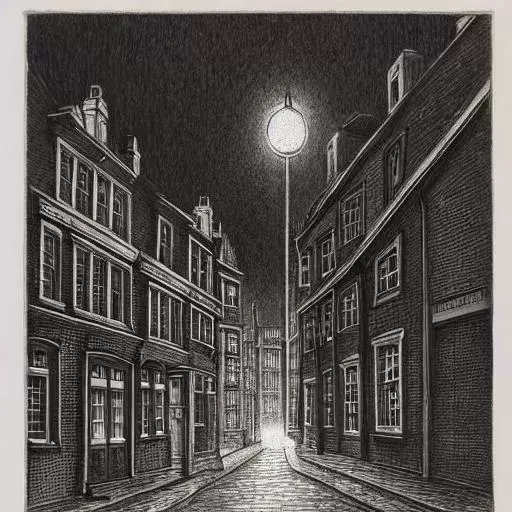
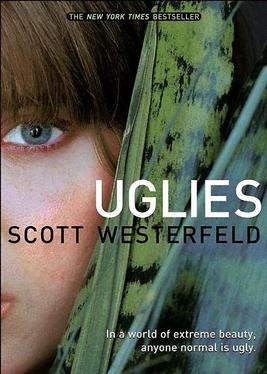



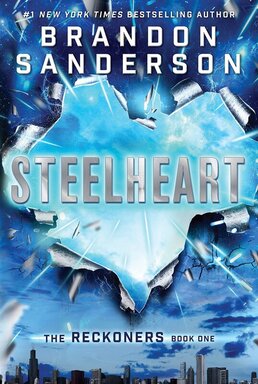
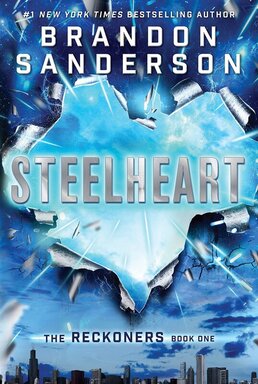
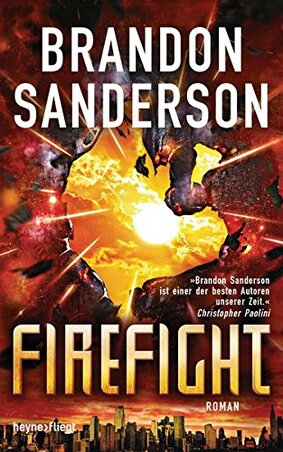
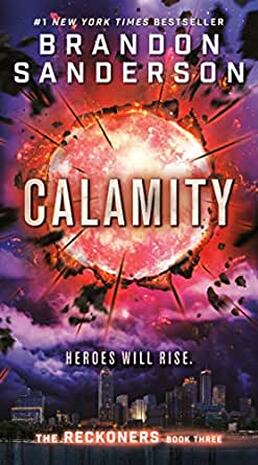
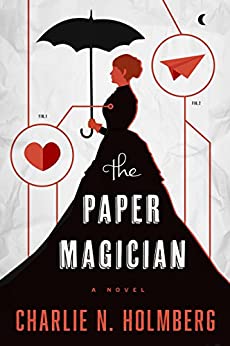
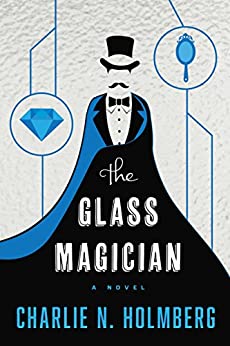
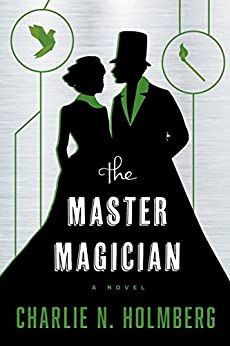
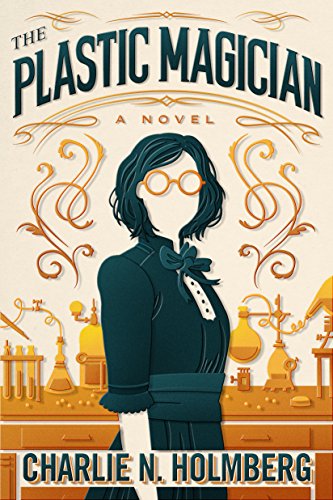
 RSS Feed
RSS Feed
